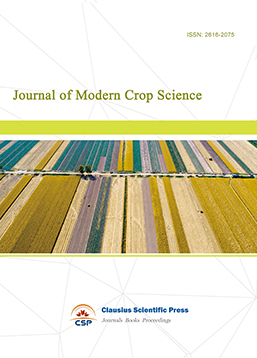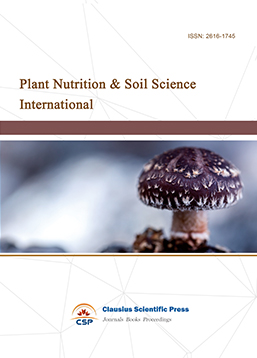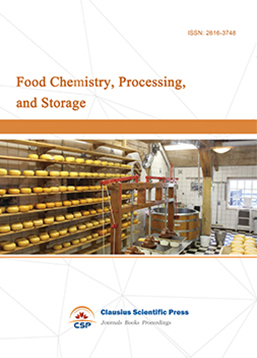A randomized, double-blind, controlled trial (RCT) aimed to evaluate the effectiveness of high-content DHA fish oil on enhancing attention
DOI: 10.23977/afshn.2025.070106 | Downloads: 24 | Views: 1191
Author(s)
Conner Lv 1, Brown Ryan 1, Doris Dai 1
Affiliation(s)
1 ETERNAL GRACE PTE. LTD, Tuas, Singapore
Corresponding Author
Conner LvABSTRACT
This study employed a randomized, double-blind, controlled trial to evaluate the effects of high-DHA fish oil on attention in healthy adults. Forty-four participants aged 24-55 years were recruited (43 completed the study: 22 in the intervention group and 21 in the control group). The intervention group received 1200mg of fish oil, while the control group received 1200mg of algal oil. Participants consumed the test products for 90 consecutive days, and their levels of attention were assessed at baseline (D0), day 30 (D30), and day 90 (D90) using the Stroop test and the MemTrax (MTX) task. Repeated measures analysis of variance revealed that the intervention group exhibited a significant reduction in Stroop mean response delay (Day 30: -16.05%, p<0.05; Day 90: -23.46%, p<0.05) and a significant improvement in Stroop accuracy (Day 30: +15.74%, p<0.05; Day 90: +18.42%, p<0.05). Furthermore, the intervention group showed a significant decrease in MTX multi-tasking reaction time (Day 30: -9.65%, p<0.05; Day 90: -19.30%, p<0.05) and an increase in accuracy (Day 30: +19.82%, p<0.05; Day 90: +25.61%, p<0.05). No significant improvements in attention were observed in the control group. The findings indicate that the high-DHA fish oil formulation used in the intervention group is more effective than the algal oil formulation used in the control group in improving attention. This evidence supports the application of high-concentration DHA fish oil in cognitive health management, demonstrating that a high-concentration DHA formulation improves attention, with its effects increasing over the 90-day intervention period.
KEYWORDS
Fish oil, Omega-3 fatty acids, DHA, attentionCITE THIS PAPER
Conner Lv, Brown Ryan, Doris Dai, A randomized, double-blind, controlled trial (RCT) aimed to evaluate the effectiveness of high-content DHA fish oil on enhancing attention. Advances in Food Science and Human Nutrition (2025) Vol.7: 39-45. DOI: http://dx.doi.org/10.23977/afshn.2025.070106.
REFERENCES
[1] Kahneman, D. (1973). Attention and Effort. Englewood Cliffs, NJ: Prentice Hall. 246 pp.
[2] WHO (2021). Mental Health Atlas 2020. Geneva: World Health Organization.
[3] Posner, M.I., Petersen, S.E. (1990). The attention system of the human brain. Annu Rev Neurosci, 13: 25-42.
[4] Dyall, S.C. (2015). Long-chain omega-3 fatty acids and the brain: a review of the independent and shared effects of EPA, DPA, and DHA. Front Aging Neurosci, 7: 52.
[5] Chung, W.L., Chen, J.J., Su, H.M. (2008). Fish oil supplementation of control and (n-3) fatty acid-deficient male rats enhances reference and working memory performance and increases brain regional docosahexaenoic acid levels. J Nutr, 138: 1165-1171.
[6] Cao, D., Kevala, K., Kim, J., et al. (2009). Docosahexaenoic acid promotes hippocampal neuronal development and synaptic function. J Neurochem, 111(2): 510-521.
[7] Ebright, B., Duro, M.V., Chen, K., et al. (2024). Effects of APOE4 on omega-3 brain metabolism across the lifespan. Trends Endocrinol Metab, 35(8): 745-757.
[8] Stavrinou, S., Andreou, P., Aphamis, G., et al. (2020). The effects of a 6-month high-dose omega-3 and omega-6 polyunsaturated fatty acids and antioxidant vitamins supplementation on cognitive function and functional capacity in older adults with mild cognitive impairment. Nutrients, 12(2): 325.
[9] Cosmetic efficacy evaluation (ⅩⅢ) -- Consumer use test. Daily Chemical Industry, 51(06): 485-490, 2021.
[10] Xu, Z., Tan, J., Deng, M., et al. (2022). Classification of Attention Test Tools and Its Evaluation of Sleep Deprivation Intervention Drugs Application. World Clinical Drugs, 43(06): 793-798.
[11] Zhu, W., Liu, W., Xu, Q., et al. (2023). The response of MemTrax online tool in the cognitive function screening of diabetes in the community use value. Chinese General Practice, 21(12): 2089-2092.
[12] Faulkner, L.M.D., Tolle, K.A., Wendell, C.R., et al. (2020). Incremental utility of an extended Stroop task for identifying subtle differences in cognitive performance among healthy older adults. Appl Neuropsychol Adult, 27(5): 440-449.
[13] Periáñez, J.A., Lubrini, G., García-Gutiérrez, A., et al. (2021). Construct validity of the Stroop Color-Word Test: Influence of speed of visual search, verbal fluency, working memory, cognitive flexibility, and conflict monitoring. Arch Clin Neuropsychol, 36(1): 99-111.
[14] Scarpina, F., Tagini, S. (2017). The Stroop Color and Word Test. Front Psychol, 8: 557.
[15] MacLeod, C.M. (1991). Half a century of research on the Stroop effect: An integrative review. Psychol Bull, 109(2): 163-203.
[16] Liu, Y., Wu, L., Chen, W., et al. (2024). The MemTrax memory test for detecting and assessing cognitive impairment in Parkinson's disease. Parkinsonism Relat Disord, 120: 106016.
[17] Zhao, X., Dai, S., Zhang, R., et al. (2023). Using MemTrax memory test to screen for post-stroke cognitive impairment after ischemic stroke: A cross-sectional study. Front Hum Neurosci, 17: 1195220.
[18] van der Hoek, M.D., Nieuwenhuizen, A., Keijer, J., et al. (2019). The MemTrax Test Compared to the Montreal Cognitive Assessment Estimation of Mild Cognitive Impairment. J Alzheimers Dis, 67(3): 1045-1054.
| Downloads: | 2827 |
|---|---|
| Visits: | 105513 |

 Download as PDF
Download as PDF



